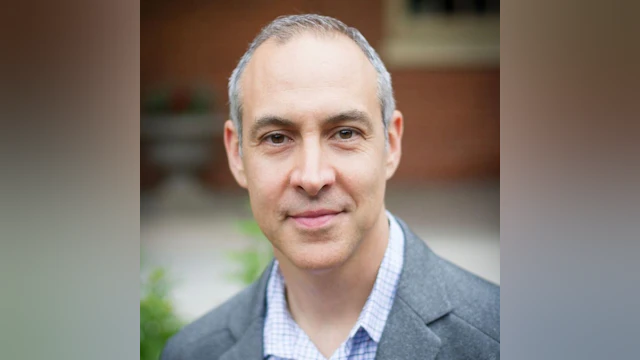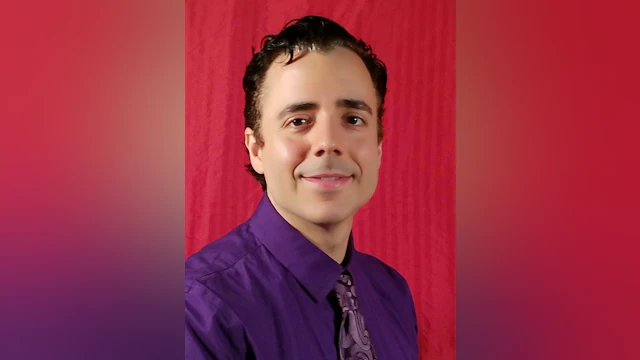The Research Roundup is a regular update of recently published findings in suicide prevention research. AFSP-funded studies included in this roundup examined how…
- we can help kids with the challenging experience of returning to school after a suicidal crisis,
- users of the Crisis Text Line found their conversations with crisis counselors to be helpful,
- understanding the relationship between chronic pain and suicide helps inform prevention, and
- serotonin receptors in the brain may be related to mood disorders and suicidal behavior.

Researcher: Marisa Marraccini, PhD
Institution: University of North Carolina
Grant Type: 2018 Standard Research Grant – $99,000
Grant Title: School Re-entry Guidelines for Adolescents Post-Hospitalization for Suicidal Thoughts and Behaviors
Returning to school after psychiatric hospitalization for suicidal thoughts and behaviors can present significant academic and social difficulties for adolescents (e.g., stigma, social isolation, low academic performance, and motivation). The immediate period following discharge may be marked by increased risk for suicide behavior and rehospitalization, making this a vital area of focus for researchers to find ways to create safe and supportive transition guidelines for students.
In her study, Dr. Marisa Marraccini conducted qualitative interviews with students and school professionals to help inform recommendations provided by hospitals to schools to improve school reintegration. The study showed the importance of school psychologists in partnering with returning students and their families, along with the need to strengthen emotional supports and channels of communication around the students’ re-entry experience.

Researcher: Anthony Pisani, PhD
Institution: University of Rochester
Grant Type: 2016 Standard Research Grant – $100,000
Grant Title: Youth Who Text a Crisis Line: Understanding Needs and Help Seeking
Crisis Text Line (CTL) is the largest provider of text-based crisis intervention help in the United States, with nearly 7 million conversations since it was created in 2013. And with the recent launch of a new nationwide three-digit number (988) for suicide prevention and mental health crisis support (which includes texting), it is important to gauge the perceptions of texters to see if they found the services effective and helpful.
With this in mind, Dr. Anthony Pisani and his team analyzed survey data from 85,877 texters who contacted CTL. In the survey, they were asked if they felt the counselor was genuinely concerned for their well-being, and if texting CTL was effective. Dr. Pisani found that nearly 90% of suicidal texters reported that the conversation was helpful, with nearly half reporting feeling less suicidal by the end of the interaction.

Researcher: Patrick Quinn, PhD
Institution: Indiana University
Grant Type: 2020 Standard Research Grant – $98,794
Grant Title: A Population-Based, Genetically Informed Study of the Effects of Chronic Pain on Suicidal Behavior
Chronic pain is a serious, long-standing, and debilitating health condition that affects approximately 1 in 5 people worldwide and has been associated with increased risk of suicidal behaviors and death by suicide. But since many different health conditions co-occur with chronic pain, it has been unclear whether it is the pain, the health conditions, or both that contribute to suicide risk.
After examining data from a large sample of 17,148 twins where one twin had a chronic pain condition and the other didn’t, Dr. Patrick Quinn found that individuals with chronic pain conditions were at a higher risk of suicidal behavior compared to their twin who had less or no pain, and that risk was higher for those with multiple chronic pain conditions. These findings could help clinicians parse out targets for treatment while helping individuals with chronic pain.

Researcher: Spiro Pantazanos, PhD
Institution: Research Foundation for Mental Hygiene
Grant Type: 2017 Standard Research Grant – $100,000
Grant Title: Imaging Informatics to Identify Neurobehavioral Risk Factors for Suicidal Ideation and Behavior
Biomarkers are measurable substances in the body that can indicate the presence of particular diseases or conditions. In suicide prevention research, some biological scientists are focused on identifying specific markers in the brain that may contribute to suicide risk. This knowledge may amplify our ability to detect suicide risk and intervene with more targeted treatment when it is needed.
The region of the brain associated with processing emotions, self-perception, and decision-making (among other functions) is called the ventromedial prefrontal cortex (vmPFC). In his study examining brain images, Dr. Spiro Pantazanos found that decreased ability for a specific serotonin molecule (5-HT1A) to bind to its receptor in the vmPFC may indicate higher vulnerability to mood disorders and suicidal thoughts and behaviors. Brain function related to serotonin may impact how a person deals with negative emotions and stress.
Learn more about the AFSP research grants featured in this monthly roundup, as well as others, here.
